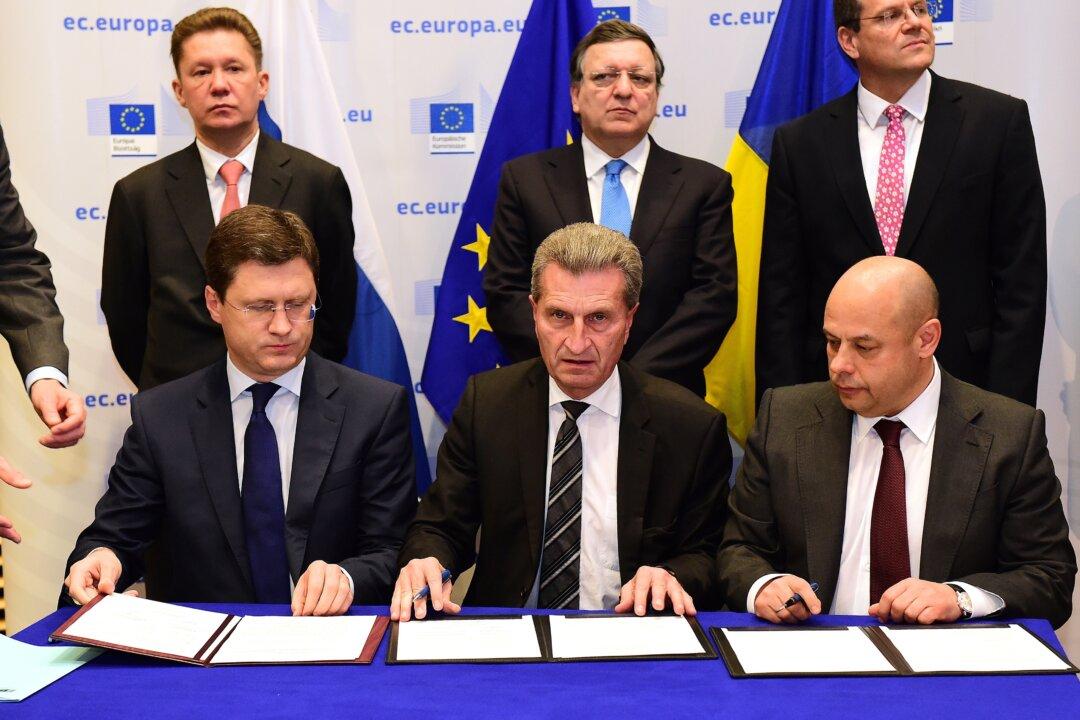BRUSSELS—In the early hours of Oct. 30 Russia and Ukraine finally signed a gas agreement in Brussels, that has been a sticking point between the two countries since June this year.
President of the European Commission, José Manuel Barroso, welcomed the long, drawn out agreement, which coincidentally was signed on his last day in office.
“There could not be a better way to end my mandate as president of the European Commission than by announcing a very important agreement between Russia and Ukraine,”he said.
Two documents were signed: a binding protocol between the European Commission, Ukraine, and Russia; and an addendum to an existing gas supply contract between Russia and Ukraine.
Ukraine has agreed to pay $4.6 billion for its so-called “winter package” which will ensure gas supplies from Russia until April 1, 2015.
Negotiations on the gas deal took seven rounds and as all parties tried to agree on an acceptable price and payment schedule.
Under the agreement. Ukraine will pay $378 per thousand cubic meters till the end of the year. From January to March, it will pay $365 per thousand cubic meters, which is $100 per cubic meter lower than what Russia initially demanded.

The price dispute between the two countries started after the former pro-kremlin President of Ukraine, Viktor Yanukovych, was ousted in February after mass protests about a proposed trade deal with Russia.
In March, Russia stopped the gas subsidies it agreed to under Yanukovych, raising the price significantly, and cut off all gas exports when Ukraine did not pay.
Ukrain will settle is debt with Russian gas company Gazprom at a reduced rate of $268 per 1,000 cubic meters by making payments in two tranches: $1.45 billion without delay, and $1.65 billion by the end of 2014.
The European Commission worked with international community to help Ukraine pay off its gas debts, and clarified with the International Monetary Fund (IMF) that Ukraine can get help paying for gas through the winter as well, payments Russia wants before it delivers. The E.U. also agreed to co-sign for Ukraine in case the struggling country defaults on its payments.
That agreement was not without benefit for the E.U. though.
The European Union receives about 30% of its gas from Russia, about half of which comes through Ukrainian pipelines. It has also invested heavily in a Ukraine’s economy and government, which it hopes will remain stable.
Vice president of the European Commission and Commissioner of energy, Günther H. Oettinger, who played a key role in the trilateral negotiations, predicted the signed treaty will help ease the conflict between two countries.
“This breakthrough will not only make sure that Ukraine will have sufficient heating in the dead of the winter. It is also a contribution to the de-escalation between Russia and Ukraine,” he said.




